X
wikiHow is a “wiki,” similar to Wikipedia, which means that many of our articles are co-written by multiple authors. To create this article, 39 people, some anonymous, worked to edit and improve it over time.
This article has been viewed 126,766 times.
Learn more...
The Internet has absorbed the task of organizing work and social relationships and commitments. However, sometimes your online life can feel like it's taking a toll on your waking life. If you want to disconnect yourself from devices, messaging and social media, you can use these tools and strategies to feel more directly connected to the world.
Steps
Part 1
Part 1 of 3:
Designing Your Home Environment
-
1Move your computers into a dedicated computer room or office. Your bedroom and another room or nook should be devoid of all electronics.
-
2Move your chargers into the computer room. When a device needs to be charged, leave it in a room. The sounds and vibrations from a charging device can interrupt an otherwise calm experience.Advertisement
-
3Make your bedroom off-limit to electronics. Don't bring your phone, tablet or TV inside. Device screens emit Blue light, which has been shown to interrupt sleeping habits.
- Most people don't get enough sleep anyway because of their constant engagement with these gadgets.
-
4Turn off your alarm on the weekends. Waking up on your own several days each week may help you feel more satisfied. If you don't get enough sleep, fill one hour of time you would normally spend on the Internet.
- Adults who get seven to eight hours of sleep per day have less stress and are healthier. Lack of sleep can actually reduce the function of your immune system and increase anxiety.
-
5Download an online timer that alerts you after 30 to 60 minutes of Internet use. You may be overusing electronics because time passes so quickly when you are absorbing information.
Advertisement
Part 2
Part 2 of 3:
Planning Non-Digital Activities
-
1Take a bath. Pour a hot or cold drink or and read in the bath. Dim the lights and light a candle to relax and enjoy a soothing bathing experience. Don't strain your eyes reading by candlelight. Magazines are a good option in the bath, it doesn't matter if they get wet.
-
2Invite friends over, with a phone call or even in person! Don't Facebook or text. Have an outdoor barbecue.
-
3Go on a hike, get out of the city or suburbs. Getting out in nature has actually been shown to improve problem-solving skills and calm the brain. Pack your smart phone deep in your backpack (for safety) and don't touch it during the hike.
-
4Join a sports league, scrabble club or other group activity.
-
5Create a "fortress of solitude". Choose one day per week when you plan to disconnect. Tell work, family and friends that you will not have your phone. Make a nice meal, read a book or do a craft.
-
6Start an off-the-grid group. During an hour every week, arrange to meet without cell phones or computers. Having companionship in your quest to disconnect will make it easier.
-
7Take an inventory of your hobbies. If you can't name two or more hobbies that you enjoy inside and outside of the house, then the Internet may have replaced your healthy outlets for creativity and stress relief.
- Start a craft or take a class.
-
8Plan a vacation for at least two weeks of the year, you don't have to go away, you can stay-cation. Prepare for the break well in advance, so that someone will take on problems that occur when you are away. Return the favor when they go on vacation. [1]
Advertisement
Part 3
Part 3 of 3:
Reducing Electronic Addiction
-
1Treat electronics and the Internet like an addiction. When someone likes your post on Facebook, it releases endorphins, much like alcohol or food. If you use the Internet more than 30 hours per week, you may consider talking to an addiction counselor. [2]
- People who use the Internet for their social interaction for more than 30 hours per week are at higher risk for suicide if they cut off their Internet use. It is especially bad for people who are forced to stop using the Internet. [3]
-
2Choose one night per week when you are off-call for work. If you work more than 40 hours per week, suggest that your entire team has an off-call night when they don't check emails or take work calls. [4]
-
3Ask family members to join you in your mission to disconnect. Don't force them. By forcing teenagers to quit using electronics, you will encourage defiance, so just get out of the house and ask your kids to put their phones away when they are outside of the house. [5]
-
4Find a place, such as a beach or state park that doesn't have cell phone reception. Go there a few hours a week and enjoy forced disconnectivity. [6]
-
5Use your email vacation reply at night. Set it every night before you leave the office, so there isn't a pressure to get back on your phone to answer personal or professional emails.
- Pick one or two nights each week when you attend to personal emails.
Advertisement
Community Q&A
-
QuestionShould I go cold turkey or slowly cut down?
 Community AnswerIf you go cold turkey you'll feel sudden urges and you may just end up giving up altogether. Start by cutting out certain amounts of computer time and removing the apps from your phone that occupy most of your time. Set a timer for the amount of time you're allowed access each day and follow through.
Community AnswerIf you go cold turkey you'll feel sudden urges and you may just end up giving up altogether. Start by cutting out certain amounts of computer time and removing the apps from your phone that occupy most of your time. Set a timer for the amount of time you're allowed access each day and follow through. -
QuestionDo I need to check my WiFi connections?
 Community AnswerYes. Most people who are heavy users of internet will more likely have their WiFi connection on all the time. We all know that excess use of gadgets can be harmful for us, therefore, limiting the use of gadgets and technology can improve our natural health and well-being to a great extent.
Community AnswerYes. Most people who are heavy users of internet will more likely have their WiFi connection on all the time. We all know that excess use of gadgets can be harmful for us, therefore, limiting the use of gadgets and technology can improve our natural health and well-being to a great extent. -
QuestionHow do I help my husband realize he has an addiction?
 Community AnswerTry challenging him to go a week with no electronics, allowing 1 or 2 hours for work-related activities (only if needed). Get him to agree beforehand that if he really is not addicted, he will have no problem completing this challenge.
Community AnswerTry challenging him to go a week with no electronics, allowing 1 or 2 hours for work-related activities (only if needed). Get him to agree beforehand that if he really is not addicted, he will have no problem completing this challenge.
Advertisement
References
- ↑ http://www.huffingtonpost.com/2012/07/05/how-the-worlds-most-wired-people-unplug-techies_n_1653809.html
- ↑ http://www.forbes.com/sites/kaifalkenberg/2013/08/09/how-to-get-your-teen-to-unplug-and-like-it/
- ↑ http://news.bbc.co.uk/2/hi/8999235.stm
- ↑ http://www.inc.com/maeghan-ouimet/how-to-stop-sleeping-with-your-smartphone.html
- ↑ http://www.forbes.com/sites/kaifalkenberg/2013/08/09/how-to-get-your-teen-to-unplug-and-like-it/
- ↑ http://www.huffingtonpost.com/2012/07/05/how-the-worlds-most-wired-people-unplug-techies_n_1653809.html
About This Article
Advertisement
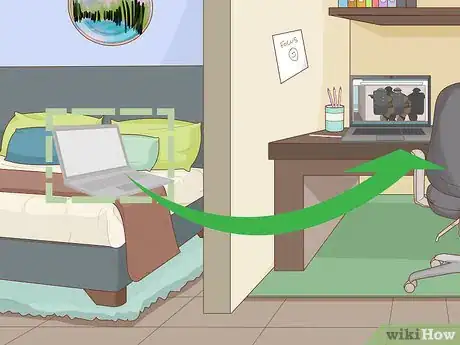
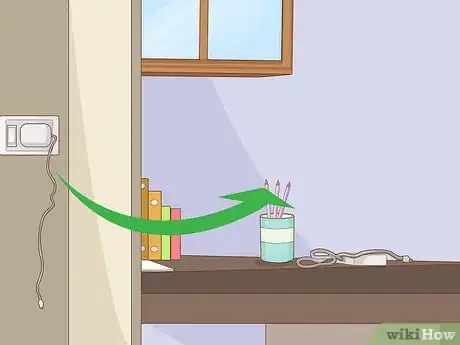
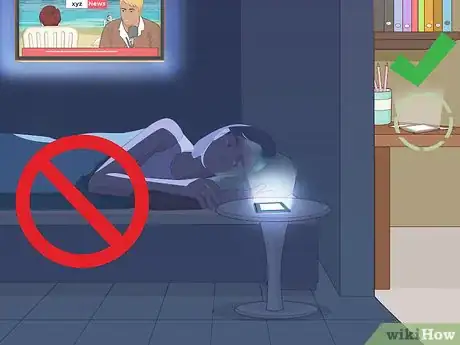
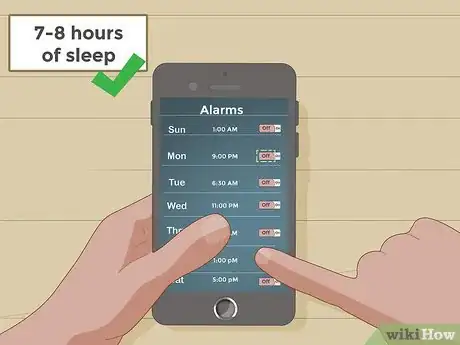
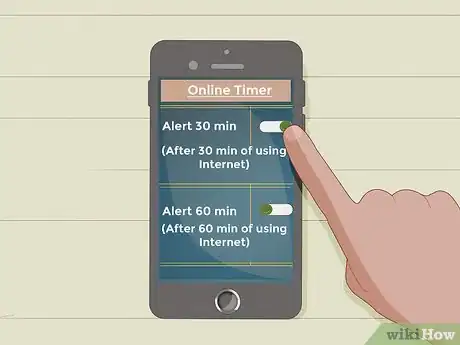

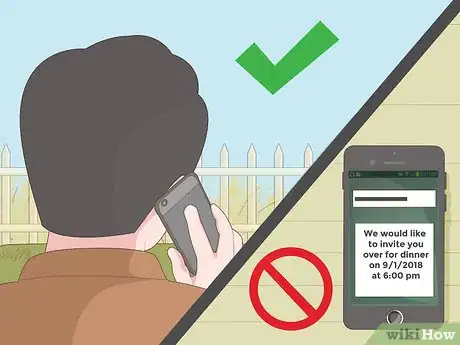

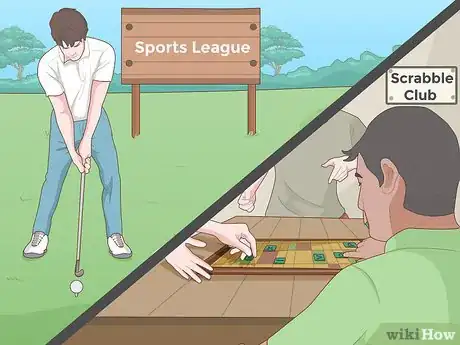
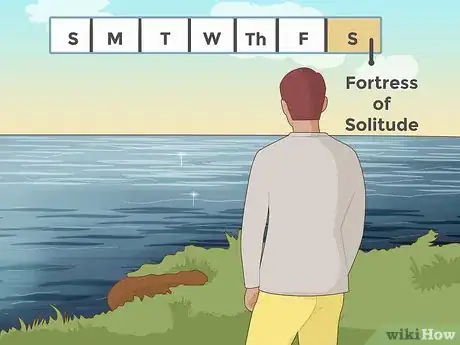
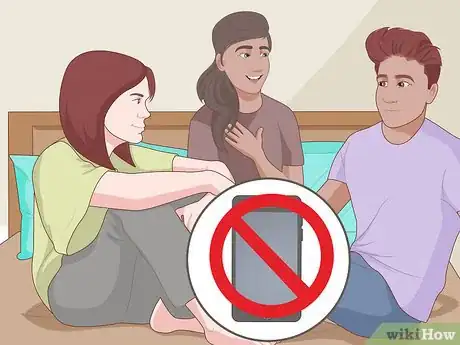
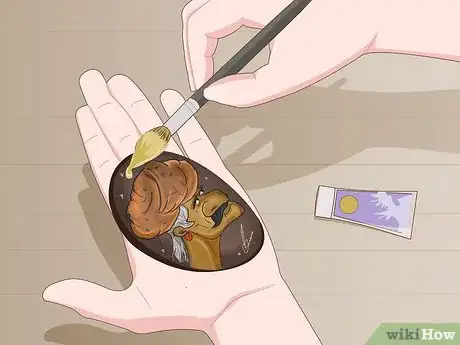
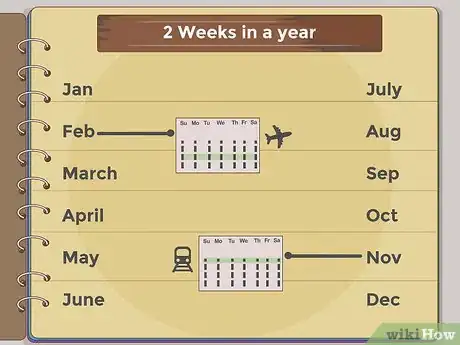

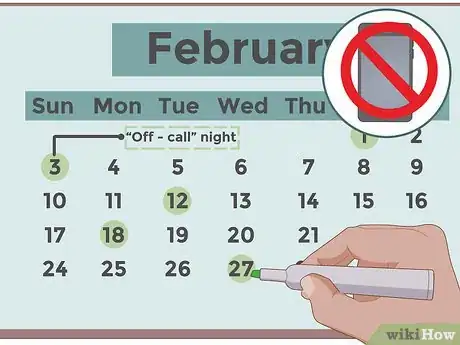

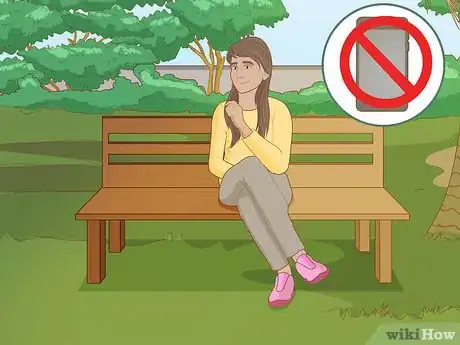
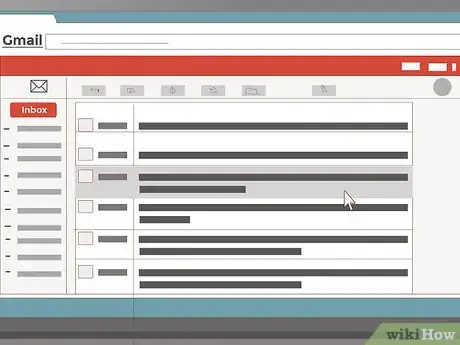
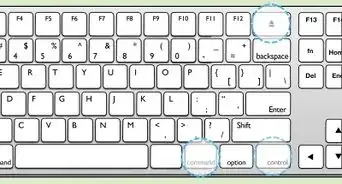


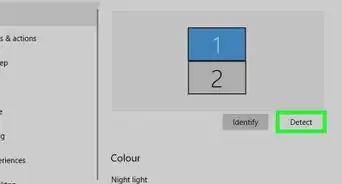
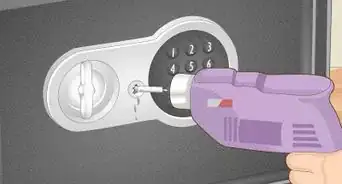

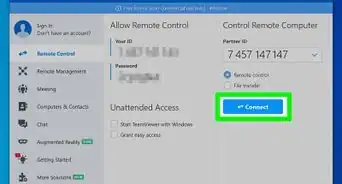
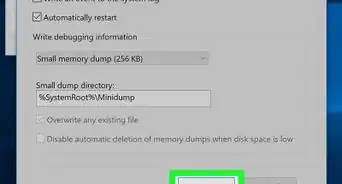
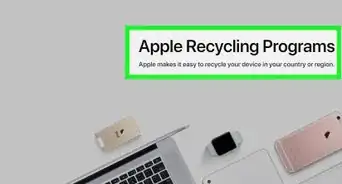


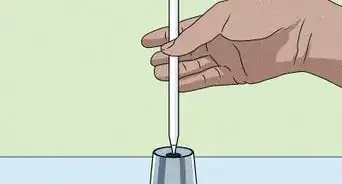
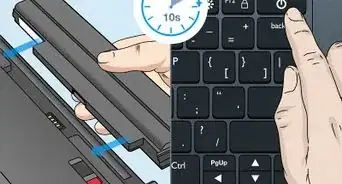










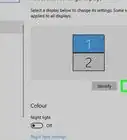



































Medical Disclaimer
The content of this article is not intended to be a substitute for professional medical advice, examination, diagnosis, or treatment. You should always contact your doctor or other qualified healthcare professional before starting, changing, or stopping any kind of health treatment.
Read More...